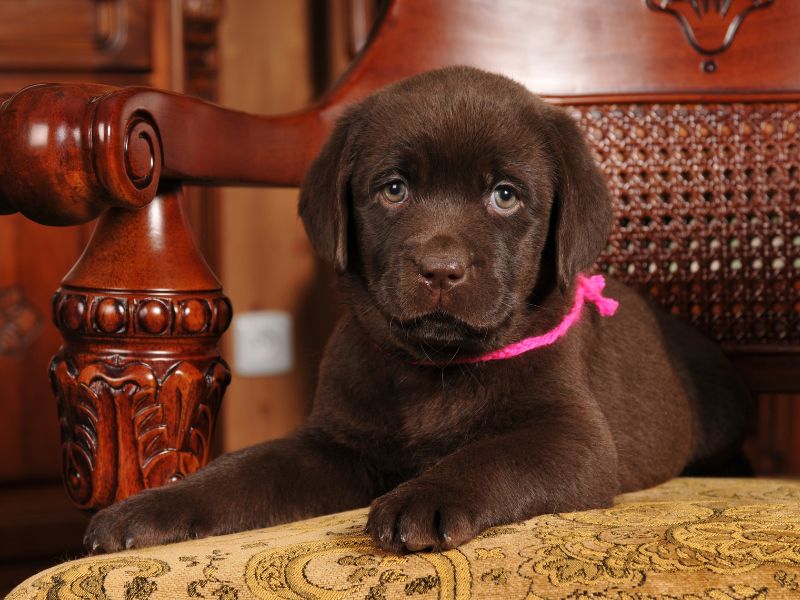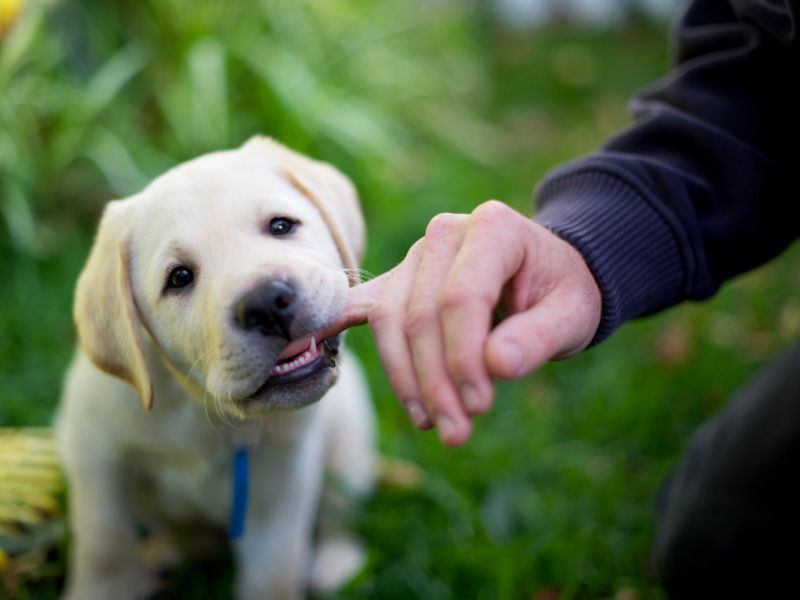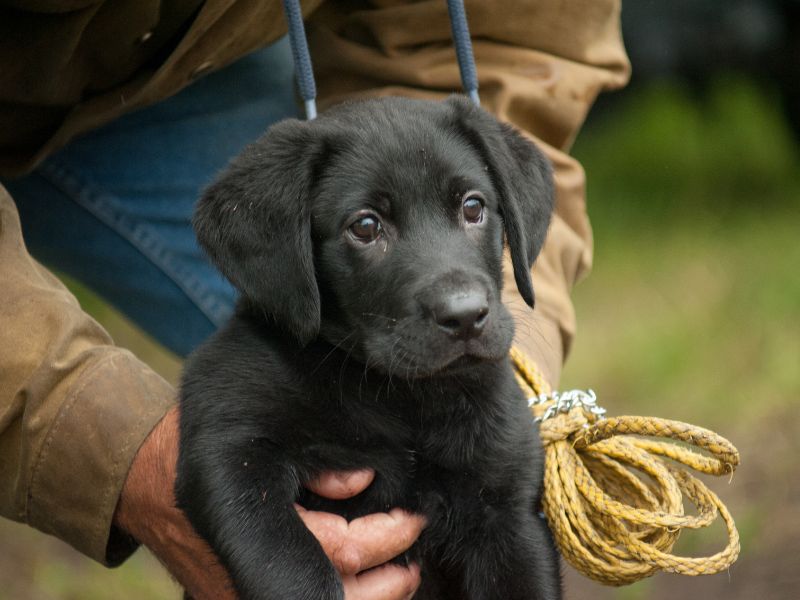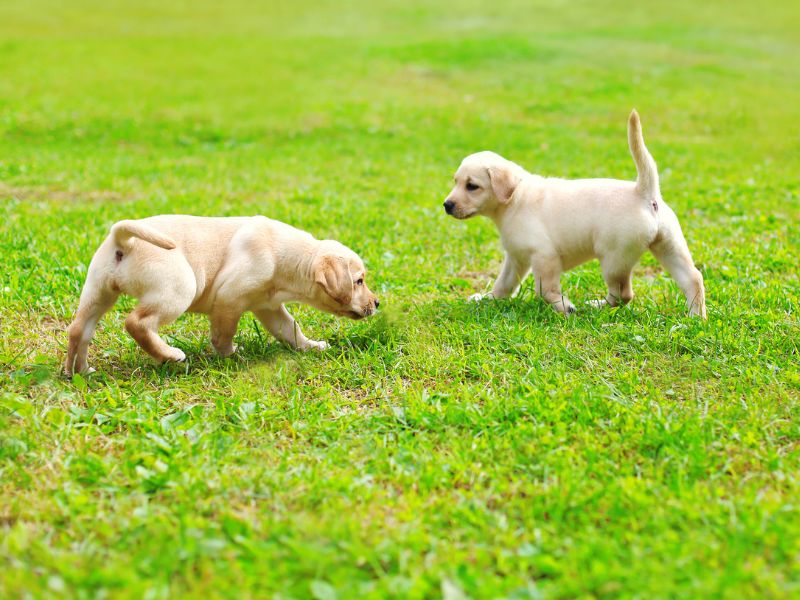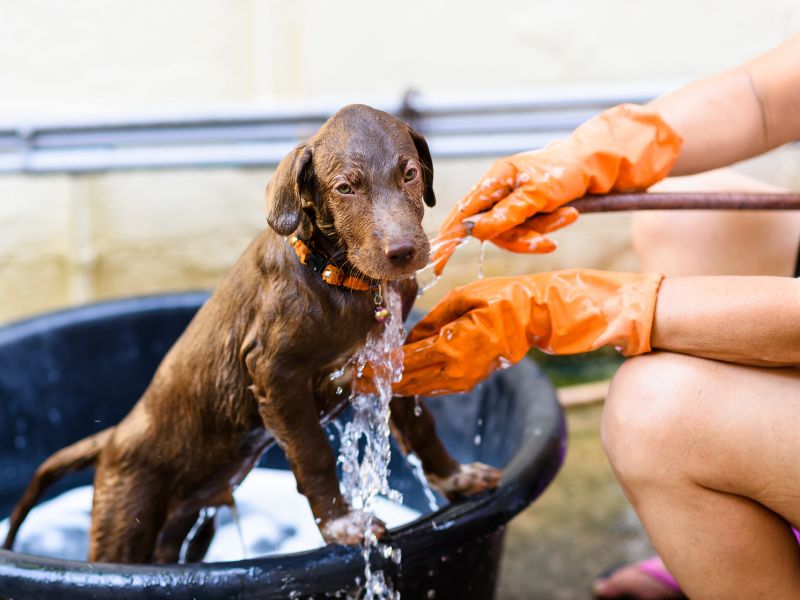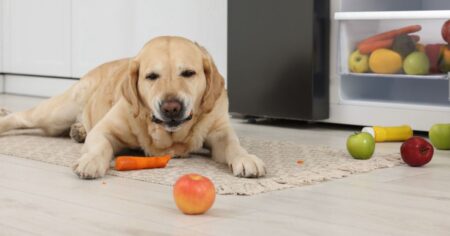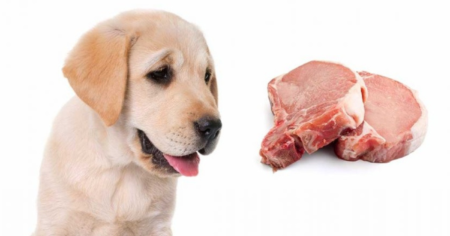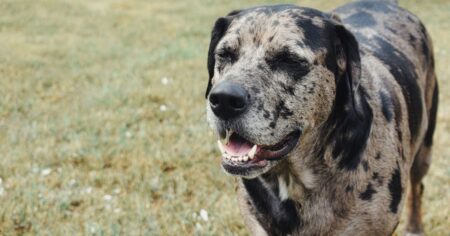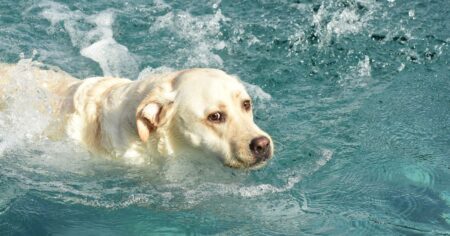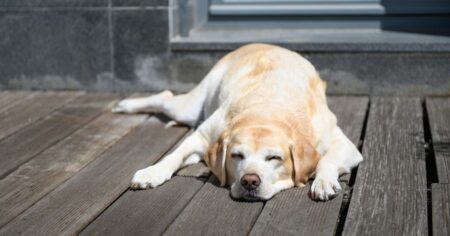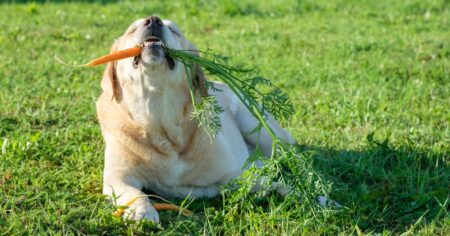At 9 weeks old, a puppy is quickly growing and learning about the world around them. This is a crucial time in a puppy’s development, as they are starting to leave the infant state and become more like a little toddler. During this stage, puppies are prone to mischief and require a lot of attention and supervision.
One of the most important things to consider when caring for a 9 week old puppy is their sleep schedule. Puppies need plenty of rest to replenish their energy levels and continue developing. It is not unusual for them to snooze for between 18 to 20 hours a day. However, it is important to ensure that they are getting enough exercise and playtime during their waking hours to promote healthy growth and development.
Another crucial aspect of caring for a 9 week old puppy is training. Basic obedience training can start as early as 7 weeks old, with commands such as sit, stay, and come. As the puppy grows older, more advanced training can be introduced, such as leash training and impulse control. Socialization is also important at this stage, as puppies need to learn how to interact with other dogs and humans in a positive and safe manner.
How Much Should a 9 Week Old Puppy Sleep?
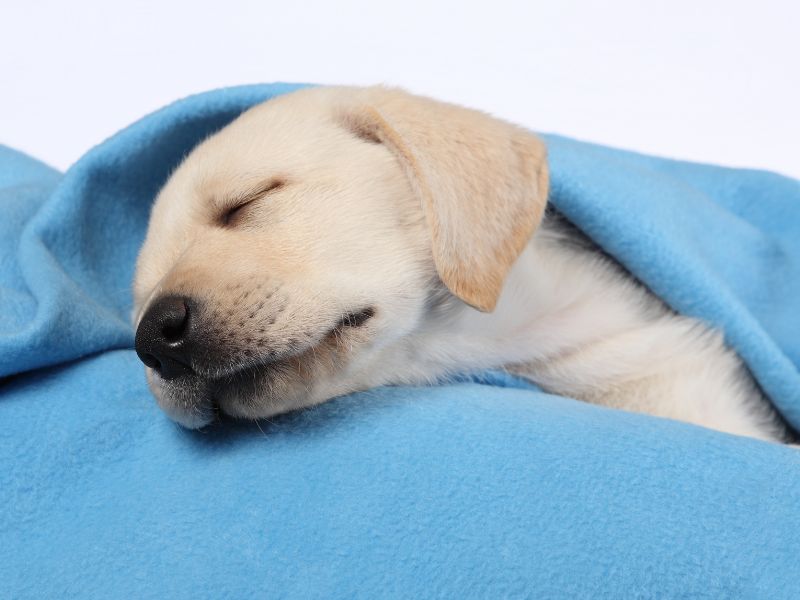
At 9 weeks old, puppies are still young and require a lot of sleep to support their growth and development. According to the American Kennel Club, most puppies sleep for around 18 to 20 hours a day. However, this can vary depending on the individual puppy’s breed, size, and activity level.
It’s important to note that puppies also need plenty of playtime and exercise to stay healthy and happy. A good rule of thumb is to provide your 9 week old puppy with 20 minutes of exercise for every hour of awake time. This can include short walks, playtime in the backyard, or interactive games with their owner.
To help your puppy establish a healthy sleep schedule, it’s important to provide them with a comfortable and safe sleeping area. This can include a cozy bed or crate in a quiet and dark room. It’s also a good idea to establish a consistent bedtime routine to help your puppy wind down and prepare for sleep.
Overall, it’s important to provide your 9 week old puppy with plenty of sleep, exercise, and playtime to support their growth and development. By establishing a healthy routine and providing a comfortable sleeping area, you can help your puppy get the rest they need to thrive.
When Will My Puppy Sleep Through the Night?
At 9 weeks old, puppies are still developing and may not sleep peacefully through the night yet. According to The Labrador Site, some puppies may start sleeping from midnight to around 6am, while others may take a little longer to adjust to their new environment. However, with time, patience, and consistency, puppies will eventually learn to sleep through the night.
One way to help puppies sleep better is to ensure they get plenty of exercise and enrichment during the day. This can help them burn off excess energy and feel more tired at night. Additionally, taking them for a last-chance potty break before bedtime can help prevent accidents and give them a chance to empty their bladder.
Another tip is to provide puppies with a “security blanket” such as a soft toy or blanket with their mother’s scent on it. This can help them feel more comfortable and secure in their new surroundings. Additionally, using calming dog pheromones or noise techniques such as white noise or calming music can help soothe puppies and promote better sleep.
It’s important to remember that every puppy is different and may take longer to adjust to a new routine. Some puppies may sleep through the night by 4 months old, while others may take up to 6 months. It’s important to be patient and consistent with training, and seek advice from a veterinarian if there are any concerns about a puppy’s sleep patterns.
9 Week Old Puppy Schedule
At 9 weeks old, puppies are still adjusting to their new home and learning how to behave properly. Establishing a consistent daily schedule can help them feel more secure and reduce anxiety.
Here is an example of a typical 9 week old puppy schedule:
Feeding Schedule
Puppies at this age should be fed 3-4 times a day, with meals spaced out evenly throughout the day. Follow the feeding guidelines on the puppy food label and adjust as necessary based on your puppy’s appetite and weight.
Potty Schedule
Puppies need to go outside frequently to go potty, especially after eating, drinking, playing, or sleeping. Take your puppy outside every 1-2 hours during the day and once or twice during the night.
Playtime and Exercise Schedule
Puppies have a lot of energy and need plenty of playtime and exercise to stay healthy and happy. Plan on spending at least 30 minutes a day playing with your puppy and taking them for short walks around the neighborhood.
Nap Schedule
Puppies need a lot of sleep to support their growth and development. Make sure your puppy has a comfortable and quiet place to nap during the day. Puppies may need to nap for 1-2 hours after playing or exercising.
By following a consistent schedule, you can help your puppy adjust to their new home and establish good habits that will last a lifetime.
How Much Should My 9 Week Old Puppy Weigh?
At 9 weeks old, a puppy is still in the early stages of development. It is normal for puppies to vary in weight at this age, depending on their breed and gender. However, on average, a 9-week-old puppy should weigh between 8 and 15 pounds (3.6 to 6.8 kg).
It is essential to monitor a puppy’s weight to ensure they are growing at a healthy rate. Overfeeding can lead to obesity and other health problems, while underfeeding can stunt a puppy’s growth and development.
To determine if a 9-week-old puppy is at a healthy weight, owners can use a puppy weight chart or consult with their veterinarian. The chart can provide an estimate of the expected weight range for a specific breed and age. If a puppy falls below or above the expected weight range, it may indicate an underlying health issue that requires medical attention.
In general, a 9-week-old puppy should have a slightly rounded belly but not be visibly overweight. Owners should be able to feel the puppy’s ribs without having to press too hard, indicating a healthy weight. It is also important to provide a balanced diet and plenty of exercise to support the puppy’s growth and development.
Potty Training a 9 Week Old Puppy
Potty training a 9 week old puppy can be challenging, but with patience and consistency, it can be a successful process. It is important to establish a routine and stick to it.
When first bringing a puppy home, it is recommended to take them outside every 30 minutes to an hour, as well as after meals, naps, and playtime. This will help prevent accidents inside the house and reinforce the idea that outside is the appropriate place to eliminate.
It is important to praise and reward the puppy when they successfully eliminate outside. This can be done with treats, verbal praise, or a combination of both. However, it is important to not punish the puppy for accidents inside the house, as this can lead to confusion and anxiety.
In addition to establishing a routine, crate training can also be helpful in potty training a puppy. Dogs are naturally den animals, and a crate can provide a safe and comfortable space for them to rest. By keeping the puppy in a crate when unsupervised, it can help prevent accidents and reinforce the idea that outside is the appropriate place to eliminate.
Overall, potty training a 9 week old puppy requires patience, consistency, and positive reinforcement. With time and effort, the puppy will learn to eliminate outside and become a well-trained companion.
9 Week Old Puppy Biting
At 9 weeks old, puppies are still in the process of learning how to interact with the world around them. One common behavior that new puppy owners may encounter is biting. This is a completely normal behavior for puppies, as they explore the world with their mouths and learn how to play with their littermates. However, it is important to teach them proper bite inhibition to prevent any unwanted biting behavior in the future.
One way to teach bite inhibition is to yelp or say “ouch” in a high-pitched tone when the puppy bites too hard. This will startle the puppy and teach them that biting too hard is not acceptable. Another method is to redirect their biting behavior onto a chew toy or bone. This will teach them that it is okay to chew on certain objects, but not on human skin or clothing.
Consistency is key when teaching bite inhibition. It is important to remain calm and patient when working with a puppy, as they are still learning and may not understand right away. With proper training and patience, a 9 week old puppy can learn to control their biting behavior and become a well-behaved adult dog.
How Much to Feed a 9 Week Old Puppy
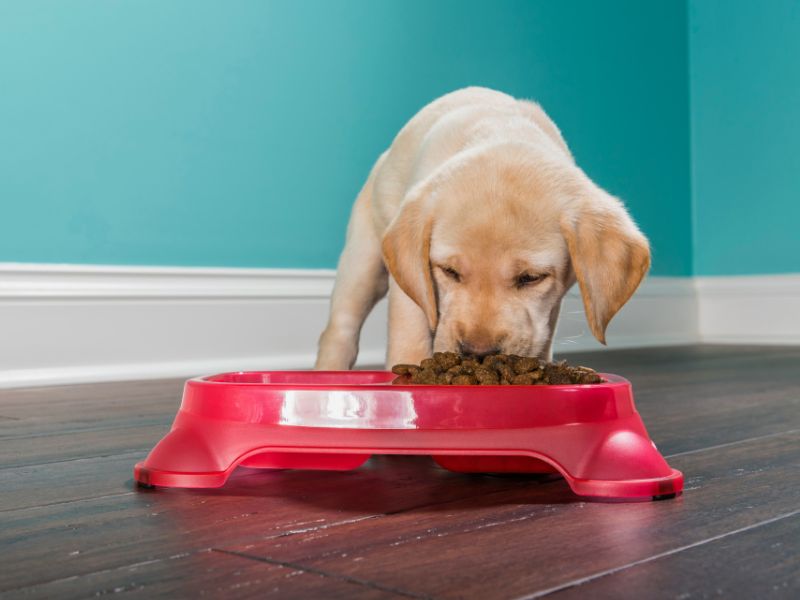
At 9 weeks old, puppies are still growing and developing rapidly, and they require a specific diet to support their growth. According to The Labrador Site, a 9-week-old puppy should be fed four small meals a day. It’s important to monitor the amount of food given to the puppy to ensure they are not overeating, which can lead to obesity and other health problems.
When it comes to the amount of food to feed a 9-week-old puppy, it’s important to follow the feeding instructions on the puppy food packaging or consult with a veterinarian. However, as a general guideline, a 9-week-old puppy should be fed approximately 1/4 to 1/2 cup of food per meal, depending on their breed, size, and activity level.
It’s also important to choose a high-quality puppy food that is specifically formulated for their age and breed. Look for puppy foods that contain high-quality proteins, such as chicken, beef, or fish, and avoid foods with fillers or artificial ingredients.
In addition to their regular meals, puppies also need access to fresh water at all times. It’s important to monitor their water intake to ensure they are staying hydrated, especially during hot weather or after exercise.
By following these guidelines, pet owners can ensure that their 9-week-old puppy is getting the proper nutrition they need to grow into healthy adult dogs.
9 Week Old Puppy Training
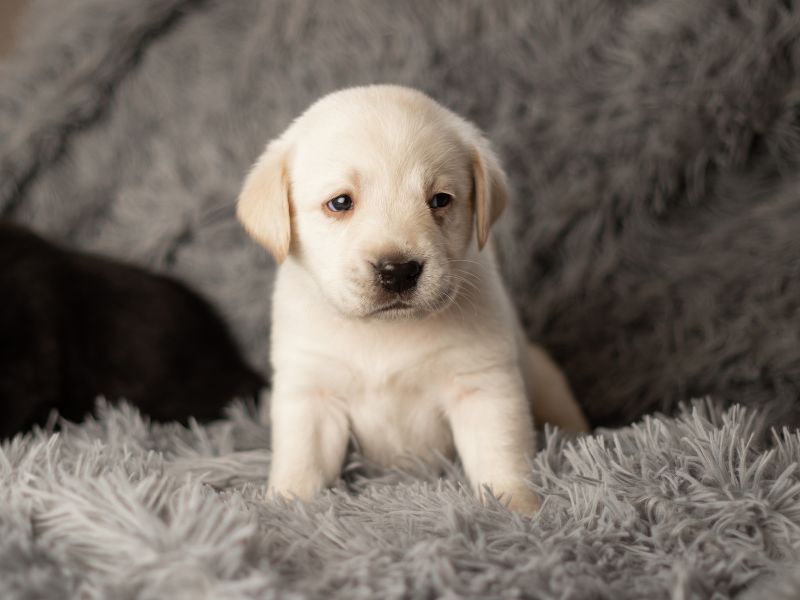
At 9 weeks old, puppies are still very young and need a lot of guidance and training from their owners. Potty training is a top priority at this stage, so it’s important to establish a consistent routine for taking them outside to do their business. Crate training is also important to help them feel safe and secure when left alone.
Positive reinforcement is key when training a puppy at any age, but especially at 9 weeks old. Using treats and praise to reward good behavior will help them understand what you want them to do. It’s important to be patient and consistent with training, as puppies can get easily distracted and may not understand what you are trying to teach them right away.
In addition to potty and crate training, it’s also a good time to start teaching basic commands such as “sit” and “stay”. Short training sessions throughout the day can help keep their attention and prevent them from getting bored. It’s important to remember that puppies have short attention spans, so keep training sessions brief and fun.
Socialization is also important at this age, as puppies are still learning how to interact with other dogs and people. Introducing them to new experiences and environments can help prevent future behavioral issues. However, it’s important to make sure they are fully vaccinated before exposing them to other dogs or public places.
Overall, training a 9 week old puppy requires patience, consistency, and positive reinforcement. With the right training and socialization, they can grow up to be well-behaved and happy adult dogs.
Socializing Your 9 Week Old Puppy
Socialization is an essential part of a puppy’s development, and it’s crucial to start early. At nine weeks old, your puppy is at the perfect age to begin socialization. The American Kennel Club recommends exposing your puppy to different people, places, sights, and sounds to help them become well-adjusted adults.
It’s important to introduce your puppy to new experiences in a controlled and positive way. For example, taking your puppy to a well-run puppy class can be an excellent way to socialize them with other dogs and people. However, it’s essential to ensure that the class is safe and that the other puppies are up to date on their vaccinations.
You can also expose your puppy to different environments, such as parks, beaches, and busy streets. However, it’s important to monitor your puppy’s behavior and avoid overwhelming them. Gradually increase the amount of time your puppy spends in new environments and reward them for good behavior.
Finally, it’s crucial to expose your puppy to different sounds, such as car horns, sirens, and fireworks. You can use recordings or videos to introduce your puppy to these sounds in a controlled environment. Gradually increase the volume and duration of the sounds, and reward your puppy for remaining calm.
Remember, socialization is a critical part of your puppy’s development, and it’s important to start early. With patience and positive reinforcement, you can help your puppy become a well-adjusted and confident adult.
Can My 9 Week Old Puppy Be Around Other Dogs
At 9 weeks old, puppies are still in the critical socialization period. It is important to expose them to new environments, people, and other dogs to help them develop good social skills. However, it is crucial to be careful about when and where you introduce your puppy to other dogs.
Puppies can meet and play with other puppies of the same age, as long as those other puppies are up to date on their vaccinations and have not had contact with unvaccinated dogs. This will help prevent the spread of diseases such as parvovirus, which can be deadly for puppies.
It is also important to supervise any interactions between your puppy and other dogs, even if they are both fully vaccinated. Puppies may not yet have learned how to communicate effectively with other dogs and may accidentally provoke them. Additionally, older dogs may not be as patient with puppies as other puppies would be.
If you are introducing your puppy to an older dog, make sure the older dog is well-trained and has a calm temperament. It is also important to introduce them in a neutral location, such as a park, rather than in one of their homes, which could lead to territorial behavior.
In summary, it is generally safe for 9-week-old puppies to be around other dogs as long as the other dogs are up to date on their vaccinations and the interactions are supervised. However, it is important to be cautious and introduce them to other dogs gradually and in a controlled manner to ensure their safety and well-being.
Can I Leave My 9 Week Old Puppy Alone?
Leaving a 9 week old puppy alone for long periods of time is not recommended. Puppies at this age are still very young and require a lot of attention and care. They may also experience separation anxiety when left alone, which can lead to destructive behavior such as chewing and barking.
However, it is possible to leave a 9 week old puppy alone for short periods of time. The American Kennel Club recommends that puppies under six months of age should not be left alone for more than two hours at a time. It is important to gradually increase the amount of time the puppy is left alone to help them adjust to being alone.
To make leaving a 9 week old puppy alone easier, it is recommended to crate train them. Crate training provides a safe and comfortable space for the puppy and can prevent destructive behavior when left alone. It is important to make the crate a positive experience for the puppy by providing treats and toys and not using it as a form of punishment.
When leaving a 9 week old puppy alone, it is important to provide them with plenty of toys and activities to keep them occupied. Puzzle toys and chew toys can help keep them entertained and prevent destructive behavior. It is also recommended to leave a piece of clothing with your scent on it to help comfort the puppy when you are away.
Overall, while it is possible to leave a 9 week old puppy alone for short periods of time, it is important to provide them with the care and attention they need at this young age. Gradually increasing the amount of time they are left alone and providing a safe and comfortable space can help make the process easier for both the puppy and the owner.
Can I Bathe My 9 Week Old Puppy?
At 9 weeks old, puppies are still very young and delicate, and their immune systems are not yet fully developed. Therefore, it’s important to be cautious when it comes to bathing them. While it’s generally safe to bathe a 9-week-old puppy, it’s important to take certain precautions to ensure their safety and well-being.
Firstly, it’s important to use a mild, puppy-specific shampoo that won’t irritate their skin or eyes. Using human shampoo or soap can be harmful to a puppy’s sensitive skin and cause irritation or allergic reactions. Additionally, it’s important to use lukewarm water and avoid getting water in their ears, as this can lead to ear infections.
It’s also important to make sure the puppy is fully dried off after their bath. Puppies can easily catch a chill if they are left wet, which can lead to respiratory infections and other health problems. Use a soft towel to gently dry them off, and consider using a blow dryer on a low setting to help speed up the process.
Overall, while it’s generally safe to bathe a 9-week-old puppy, it’s important to take certain precautions to ensure their safety and well-being. By using a mild, puppy-specific shampoo, lukewarm water, and making sure they are fully dried off after their bath, you can help keep your puppy clean and healthy.


